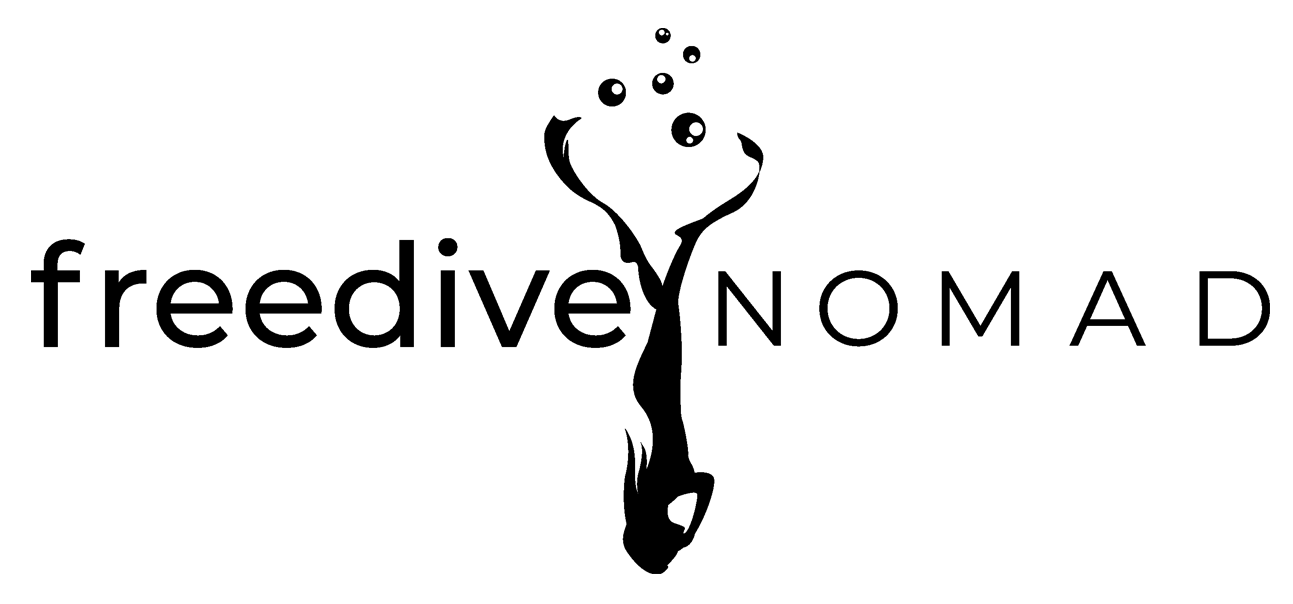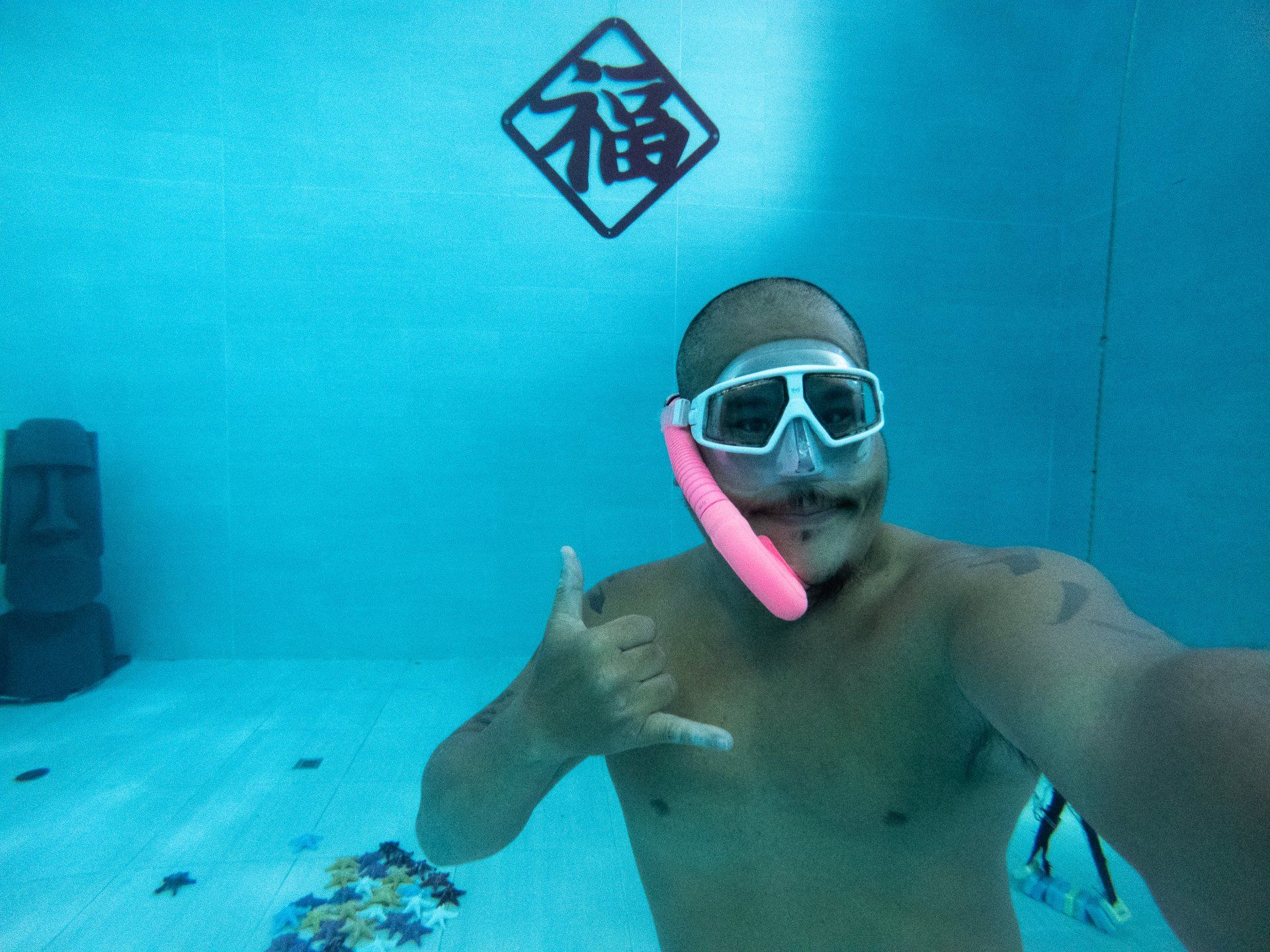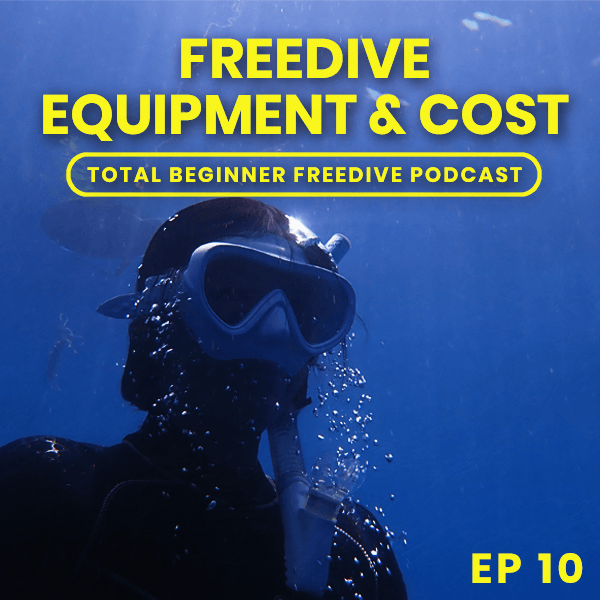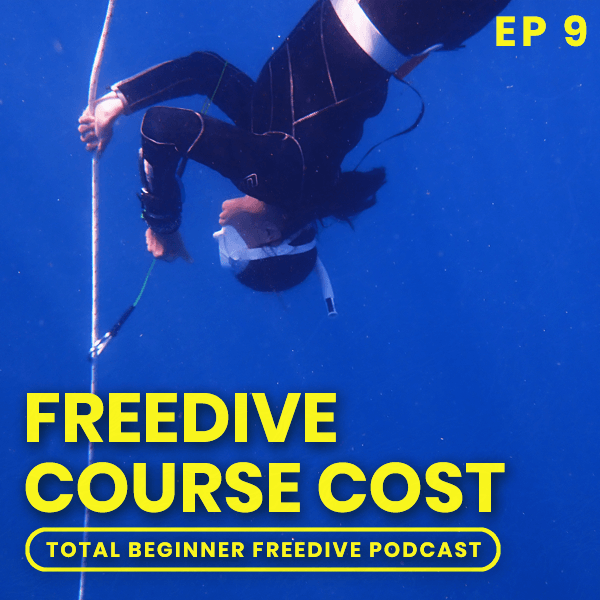Raymond Ko • July 4, 2021
My Octopus Teacher Sucked
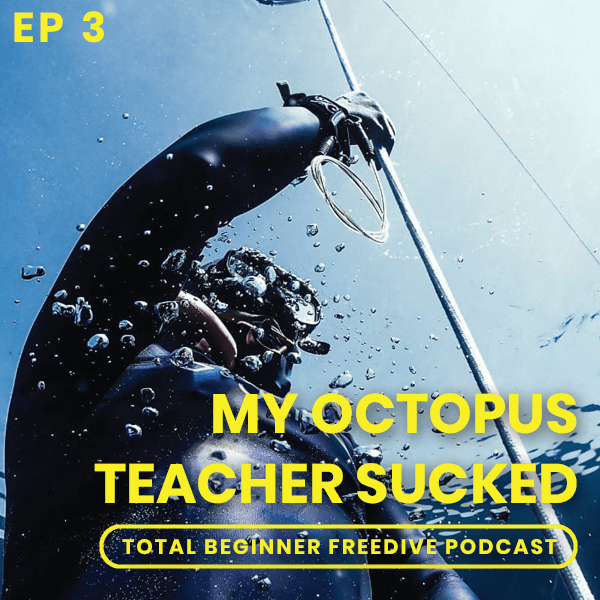
Show Notes
This podcast is brought to you by Octopus Freediving
Yes, it won an Oscar, but from the perspective of a freedive instructor the main subject in the documentary was clearly an untrained freediver.
He had VERY poor technique, that not only risked his OWN life but the millions of people who watched it and try to emulate themselves.
It was irresponsible of Netflix to show this without some kind of warning that the subject was not a trained freediver and his technique should not be copied.
Resources
Facebook Group
Free E-book Sign Up
Free Online Freedive Safety Course
You can support this show by buying from our affiliates partners:
Synctuition - my favorite meditation app and I've tried A LOT
Waihana Wetsuits - the coolest looking wetsuits using eco-friendly neoprene. Use the coupon code 0OG0UZZBLP for 15% off
Blue Cannatine - the BEST nootropic to get my brain to function optimally after diving. 10% discount with that link.
Transcript
Hello future freediver and welcome to the Total Beginner Freediving Podcast brought to you by Octopus Freediving which make the highest quality freediving accessories.
You are listening to episode #3 about why I thought the Netflix documentary My Octopus Teacher absolutely SUCKED
Hola, Ray here, aka the Freedive Nomad and I am the host of this show.
Now, My Octopus Teacher.
Ya, I know it won an Oscar for the best documentary. It was a great story, it was shot very well and it's a nice change to have a documentary about the ocean which didn’t make you feel super pessimistic or stop eating fish forever.
I understand why people loved it.
My main issue was the main character, Craig, was an untrained freediver. There is one article that says he was a “experienced freediver”.
Frankly experience doesn’t mean squat if you aren’t doing it correctly. And his technique was not only awful, but also dangerous.
Honestly, it was extremely irresponsible to show his dangerous technique on a huge platform like Netflix for people to emulate and potentially die. And I’m not joking, the way Craig was freediving could have cost him his life, and he’s lucky it didn’t.
I intentionally put this episode after the previous episode about whether freediving is dangerous or not, and remember the quick answer was it is very dangerous if you don’t know what you are doing and relatively safe if you know what you are doing.
And Craig here is a perfect example of someone who doesn’t know what they are doing freediving and the show gives us some very good examples of technique he was doing incorrectly and gives me the opportunity to explain to you why it's dangerous.
I identified 6 mistakes he’s made in the documentary:
#1 Diving Alone
This is the #1 rule in freediving and we learned that blackouts was the biggest risk in freediving in the last episode and when you blackout alone, you die. At the end of the documentary it mentioned that Craig no longer dives alone which is fantastic.
# 2 Not Wearing a Wetsuit
Craig was diving in really cold conditions, 8-9 degrees celsius or about 46 degrees Fahrenheit and you consume more oxygen when you are cold to warm up your body thus increasing risk of black out. Look, I’m all for cold immersion therapy, I do ice baths once or twice a week with other freedive instructors on the island, but there is a time and place for everything and freezing your ass off while freediving is not one of them.
#3 Wearing Too Much Weight
I don’t ever wear weights when I freedive without wetsuit because wetsuits are very buoyant and weights are mostly for counteracting the wetsuit's buoyancy. It looks like he was wearing 5kgs of weights which is more than I wear with a 3mm wetsuit on.
Why is this dangerous? Basically you are making the hardest part of the dive during the ascent even harder? Why’s this?
Because the last part of the dive is when you are most hypoxic, or low levels of oxygen and also experience the largest drop in partial pressure of oxygen that we discussed in the last episode.
Thus by wearing those weights you make the ascent much harder as you use more energy kicking - using up more oxygen and risking a black out. If he were weighted properly he’d just float up with zero effort for at least the last several meters.
Moreover if he is diving with a buddy and he blacks out on the surface. He will not be buoyant at the surface. It's much more difficult to rescue and revive a blacked out diver if they don’t float on the surface.
#4 No Duck Diving
This is related to #3 wearing too much weight. I am assuming here he is overweighted to make his descent easier because he can’t do a proper duck dive.
He just sticks his head underwater and starts sinking.
What is a duck dive? It’s an efficient movement to get you a few meters below the surface without exerting yourself too much gaining momentum to continue deeper. This will get you to about 2-3 meters below the surface with little effort, even without wearing weights.
#5 Snorkel in the Mouth While Underwater
A diver with the snorkel still in his mouth underwater serves NO PURPOSE.
The human body is an amazingly elegant piece of work. It literally knows when you black out in water and your body does something called a laryngospasm where your vocal folds folds over creating a seal to prevent water from flooding into your lungs, which will make saving a diver exponentially more difficult.
But that’s only if your mouth is shut and not sucking on a snorkel which would act as a funnel of water into your throat and breaking that seal.
#6 He Doesn’t Appear to do Recovery Breaths
I’m not 100% sure of this as they cut out shortly after he surfaces but proper recovery breaths facilitate replenishing your oxygen levels as quickly as possible as you can still blackout after you surface. You are not in the clear once you surface as many many blackouts occur at the surface. Recovery breaths can prevent blackouts.
And for those six reasons, that’s why I think my octopus teacher absolutely sucked.
In a freedive course you’ll learn to avoid all these mistakes.
Check out my YouTube video I did on this subject in the show notes.
That’s it for today.
But before we go, I wanted to talk to you about relaxation. The biggest needle mover in progressing in freediving is your ability to achieve higher levels of relaxation. And no better way to do that than meditation. I’ve spent $1000 on a meditation course that all the high performers have taken and swear by but I had trouble keeping at it and I’ve also tried a lot of apps which have helped to a certain degree but Synctution is on a whole another level.
I listen to it every day for 25 minutes and it's helped my sleep, my naps and with my breath holding. It’s changed my life for the better cuz when you’re relaxed and chilled, everything is easier. You can get a free trial by going to freedivepodcast.com/meditate
And finally, if you like what you heard so far, please leave a review on your favorite podcast directory so I can reach more people like you and help them start their freediving journey.
And if there are any topics you’d like me to cover please reach out to me on Instagram @freedivenomad.
DIVE SAFE AND NEVER DIVE ALONE and like maybe take a freedive course
